How Will AI Power the Future of Successful Content Marketing?
The landscape of content marketing has undergone significant transformations over the years, evolving from simple blog posts and email newsletters to sophisticated, data-driven strategies that leverage the latest in technological advancements. At the forefront of this revolution is Artificial Intelligence (AI), a tool that is set to redefine the future of content marketing, making it more personalized, efficient, and impactful.
Topics
The Intersection of AI and Content Marketing
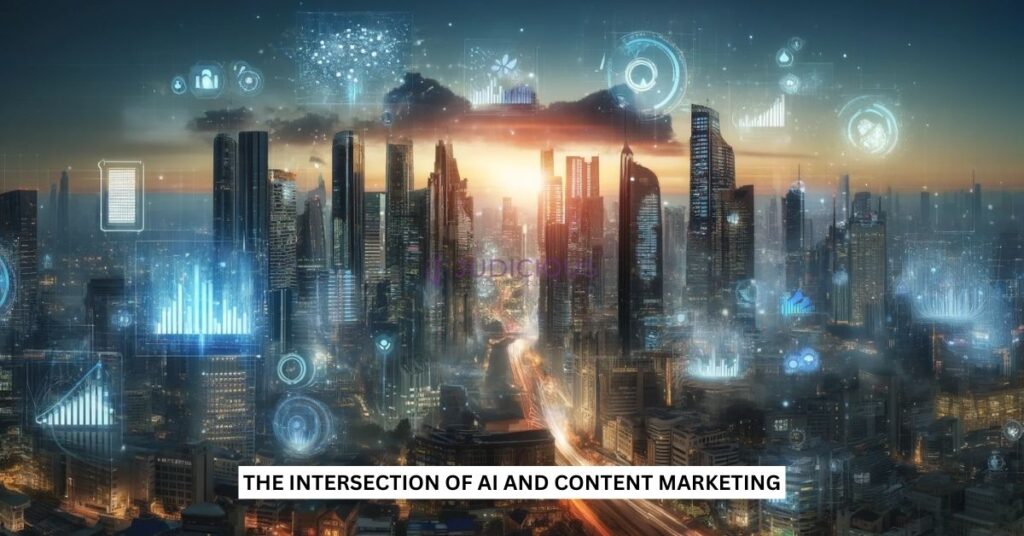
The intersection of Artificial Intelligence (AI) and content marketing signifies a transformative shift in how content is created, optimized, and strategized. AI technologies are not just tools; they are becoming integral partners in the content marketing journey, offering insights, efficiencies, and capabilities that were previously unattainable. Below, we delve into the critical components of this intersection, shedding light on how AI is reshaping content creation, optimization, and strategic planning.
Understanding AI in Content Creation

Natural Language Generation (NLG)
Natural Language Generation (NLG) is a subset of AI that focuses on converting data into natural language. This technology allows computers to generate content that mimics human language, making it readable, engaging, and contextually relevant. NLG tools can produce various content types, including reports, articles, and even creative stories, by learning from vast datasets. This capability is incredibly beneficial for content marketers, as it can help scale content production without compromising quality. NLG can generate first drafts or provide content ideas based on trends and data insights, significantly reducing the time and effort required for content creation.
Content Optimization Tools
AI-powered content optimization tools are designed to enhance the effectiveness of content by analyzing its performance and suggesting improvements. These tools use machine learning algorithms to understand what content resonates with specific audiences, based on engagement metrics, search engine rankings, and social media interactions. They can offer recommendations for keywords, content length, readability, and other SEO factors that influence content visibility and engagement. By leveraging these insights, marketers can refine their content to better meet their audience’s needs and improve search engine performance.
AI in Content Strategy and Planning

Predictive Analytics
Predictive analytics employs AI and machine learning to analyze data and predict future trends, behaviors, and outcomes. In content marketing, predictive analytics can forecast content trends, audience preferences, and the potential impact of different content strategies.
This foresight allows marketers to make informed decisions about what content to produce, when to publish it, and how to distribute it for maximum impact. Predictive analytics can also identify potential market shifts or changes in consumer behavior, enabling marketers to adjust their strategies proactively.
Audience Analysis Tools
Audience analysis tools powered by AI provide deep insights into the demographics, interests, and behaviors of a brand’s target audience. These tools analyze data from various sources, including social media, website interactions, and customer databases, to build comprehensive audience profiles.
Marketers can use this information to tailor their content more effectively, ensuring it resonates with their intended audience. AI-driven audience analysis can reveal patterns and preferences that might not be apparent from manual analysis, enabling more personalized and effective content marketing strategies.
In conclusion, the intersection of AI and content marketing is revolutionizing the way content is created, optimized, and planned.
From generating articles with NLG to optimizing content for better engagement and using predictive analytics for strategic planning, AI is empowering marketers to achieve greater efficiencies and effectiveness in their content marketing efforts.
As these technologies continue to evolve, we can expect even more innovative applications of AI in the realm of content marketing, further enhancing the ability to connect with and engage audiences.
Enhancing Content with AI

Personalization at Scale
Dynamic Content Customization
Dynamic Content Customization refers to the use of AI to tailor content to the individual preferences, behaviors, and interests of each user in real-time. This approach leverages data analytics and machine learning algorithms to analyze a user’s interaction history, demographic information, and engagement patterns.
Based on this analysis, AI can dynamically alter the content a user sees on websites, apps, or digital platforms, ensuring that the content is highly relevant and engaging. For instance, an e-commerce website might use AI to display products similar to what a user has shown interest in the past, enhancing the shopping experience and increasing the likelihood of a purchase.
Automated Email Marketing Campaigns
Automated Email Marketing Campaigns utilize AI to personalize email content for each recipient at a massive scale. By analyzing past email interactions, purchase history, and user preferences, AI algorithms can segment audiences into distinct groups with similar behaviors and interests.
This enables marketers to craft customized email messages that resonate with each segment, improving open rates, click-through rates, and conversion rates. For example, a travel agency might use AI to send personalized travel deals and recommendations to users based on their past travel destinations, budget, and preferences.
SEO and AI
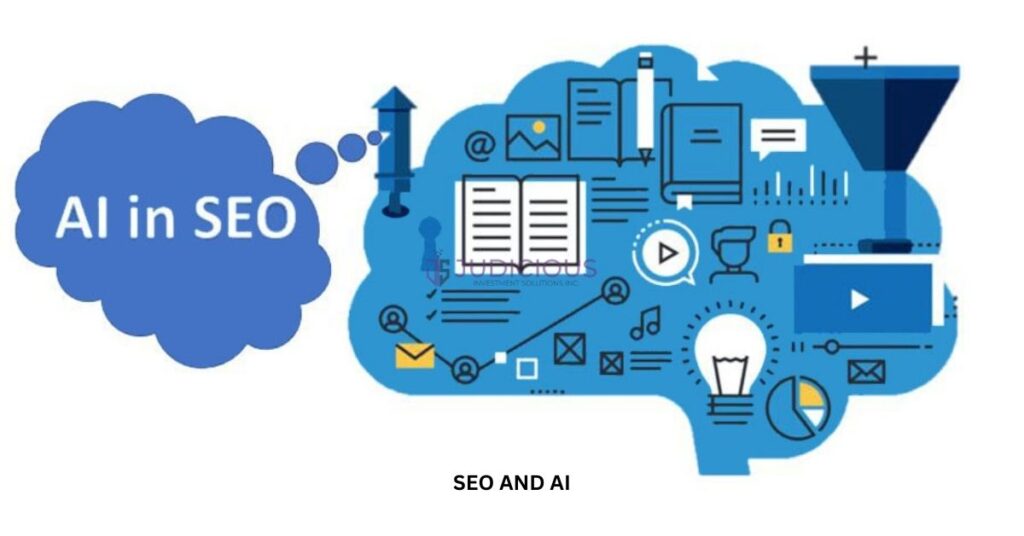
Keyword Research and Optimization
AI significantly enhances the process of Keyword Research and Optimization, making it more efficient and effective. AI tools can process vast amounts of data to identify trending topics, search query patterns, and the competitive landscape.
They can suggest keywords that are not only relevant but also have a high potential for ranking, based on search volume and difficulty scores. Moreover, AI can analyze the content of top-ranking pages to recommend keyword opportunities and content topics that are likely to perform well, ensuring that content creators focus on terms that offer the best return on investment.
AI for On-page SEO
On-page SEO involves optimizing web pages to rank higher in search engines and earn more relevant traffic. AI contributes to this process by automating tasks such as content analysis, meta tag generation, and internal linking strategies. AI can evaluate the quality of content against specific keywords, suggest improvements, and identify gaps that need to be addressed to match or surpass competitor pages.
Additionally, AI-powered tools can generate meta tags that are optimized for click-through rates, helping pages stand out in search results. By automating these processes, AI allows SEO professionals to focus on strategy and creativity, rather than tedious optimization tasks.
In conclusion, the integration of AI into content creation and marketing strategies offers unparalleled opportunities for personalization at scale and optimization for search engines.
By leveraging AI for dynamic content customization, automated email marketing, keyword research, and on-page SEO, businesses can create more relevant, engaging, and effective content strategies that meet the evolving needs of their audience and the competitive dynamics of search rankings.
AI in Content Distribution and Promotion
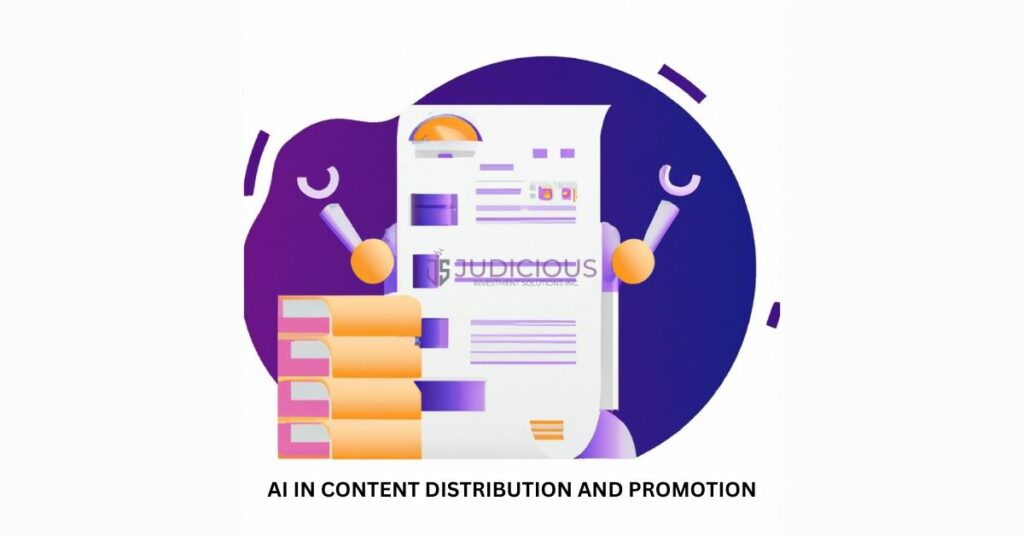
Social Media Automation

Social media platforms are integral to digital marketing strategies, providing a vast stage for content distribution. AI-driven social media automation tools have transformed this landscape by enabling businesses to publish content efficiently across multiple platforms without manual intervention.
These tools use AI algorithms to analyze user engagement data and optimize the timing of posts for maximum visibility and interaction. They can also generate insights into content performance, helping marketers refine their strategies.
Moreover, AI in social media automation extends to content creation and curation. It can suggest content topics likely to resonate with the target audience, draft posts, and even recommend visual elements based on trending styles and past engagement metrics. This level of automation allows for a more dynamic and responsive content strategy that can adapt to changing audience preferences in real-time.
Programmatic Advertising
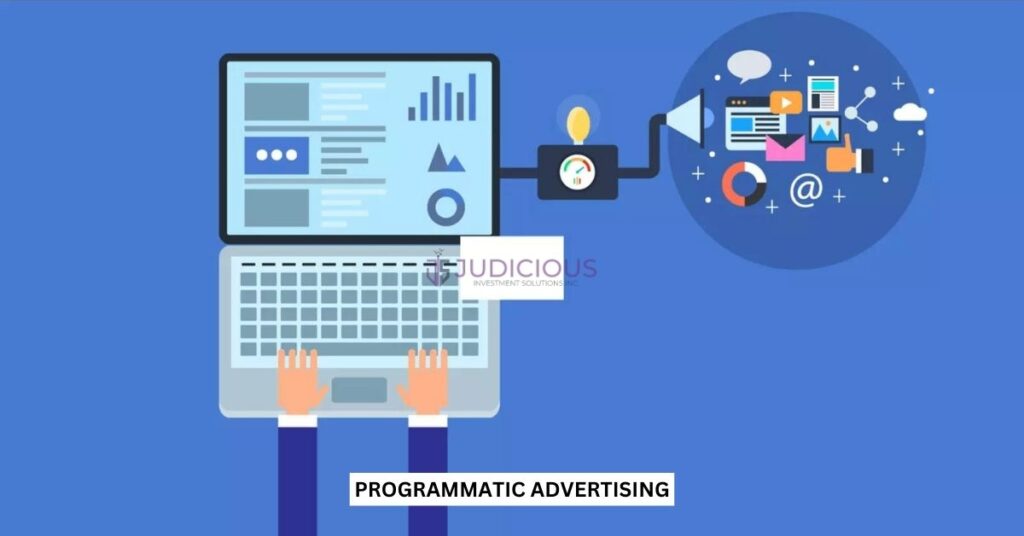
Programmatic advertising represents a significant leap from traditional ad buying, leveraging AI to automate the purchasing of ad space and optimize the targeting of advertisements. This method uses sophisticated algorithms to analyze vast amounts of data in real-time, including user demographics, browsing habits, and engagement history, to place ads where they are most likely to be effective.
The efficiency of programmatic advertising is unparalleled. It ensures that content and advertisements are displayed to the right audience at the right time, significantly increasing conversion rates and ROI. Furthermore, AI-driven analytics and reporting tools provide deep insights into campaign performance, allowing for continuous optimization of ad strategies based on real-time feedback.
Chatbots for Engagement
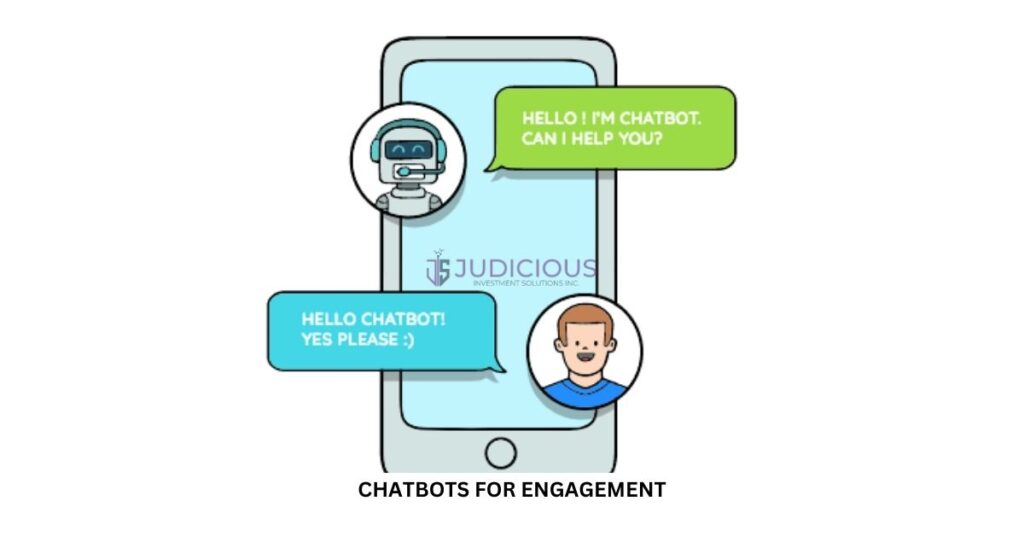
Chatbots, powered by AI, have transformed how businesses engage with their audience. These virtual assistants provide immediate responses to user inquiries, offering a 24/7 engagement channel. Through natural language processing and machine learning, chatbots can understand and respond to a wide array of user requests, from providing content recommendations to answering FAQs and facilitating transactions.
Beyond basic interaction, AI chatbots can personalize conversations based on user data, making interactions more relevant and engaging. This capability enables a more dynamic content distribution method, where content is not just pushed to users but is delivered based on individual preferences and behaviors. Chatbots can also gather valuable feedback and data, informing content creation and distribution strategies and ensuring that content resonates with the target audience.
Measuring Success with AI

Measuring success with AI involves leveraging advanced analytics and sentiment analysis to interpret complex data and user feedback efficiently. This approach enables organizations to predict trends, personalize experiences, and optimize strategies for better decision-making.
By integrating AI-driven insights into their operations, businesses can enhance performance, customer satisfaction, and achieve competitive advantage. It transforms raw data into actionable intelligence, guiding towards measurable outcomes and success in various domains.
Enhanced Analytics and Reporting

In today’s data-driven world, the measurement of success often hinges on the ability to analyze and interpret data accurately and efficiently. Artificial Intelligence (AI) has revolutionized the field of analytics and reporting, offering unparalleled insights into various aspects of business, technology, and user engagement.
Enhanced analytics and reporting through AI involve the use of machine learning algorithms, big data analytics, and automated reporting systems to derive actionable insights from complex datasets.
AI-powered analytics tools can sift through massive amounts of data in real-time, identifying patterns, trends, and anomalies that might be invisible to the human eye. These tools are capable of processing structured data, like sales figures or web traffic stats, as well as unstructured data, such as social media posts or customer reviews, providing a holistic view of the metrics that matter the most.
Key benefits include:
- Predictive Analysis: AI can forecast future trends based on historical data, helping organizations make proactive decisions.
- Personalization: By understanding customer behavior and preferences, businesses can tailor their services and communications, enhancing customer satisfaction and loyalty.
- Efficiency: Automated reporting reduces the need for manual data analysis, saving time and minimizing the risk of human error.
- Real-time Insights: AI enables real-time monitoring of key performance indicators (KPIs), allowing for quick adjustments to strategies or operations.
By leveraging enhanced analytics and reporting, organizations can gain a competitive edge, optimize their operations, and enhance decision-making processes, leading to improved outcomes and success.
Sentiment Analysis for Content Feedback
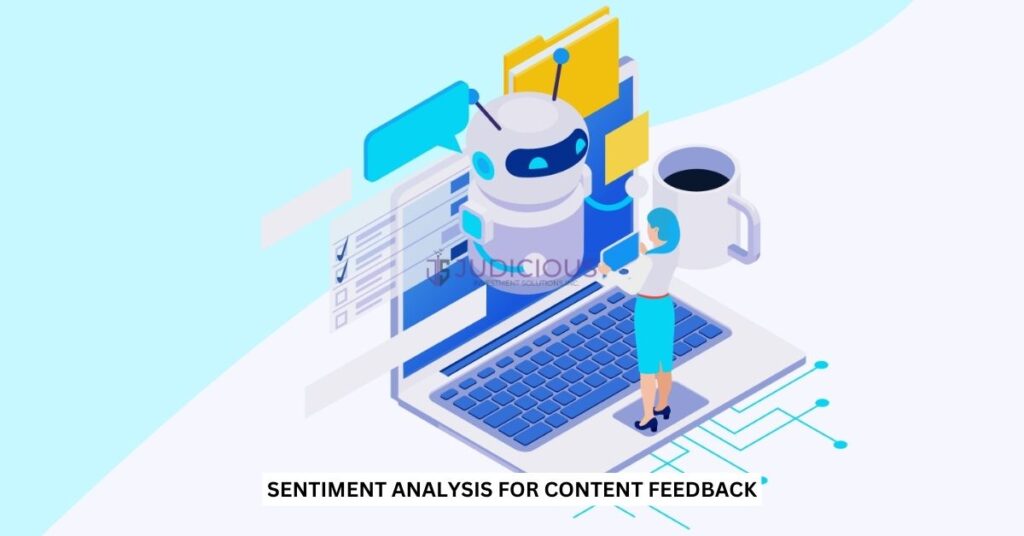
Sentiment analysis, also known as opinion mining, is a subfield of AI that focuses on identifying and categorizing opinions expressed in text data to determine the writer’s attitude toward a particular topic, product, or service. This technology is instrumental in understanding how audiences perceive content, offering valuable feedback that can inform content creation, marketing strategies, and product development.
Using natural language processing (NLP), machine learning, and text analysis, sentiment analysis evaluates the emotional tone behind a body of text, classifying it as positive, negative, or neutral. This process involves:
- Data Collection: Gathering text data from various sources such as social media, customer reviews, forums, and feedback surveys.
- Preprocessing: Cleaning and preparing the data for analysis. This may include removing noise, standardizing text, and identifying key phrases or terms.
- Analysis: Applying algorithms to assess and classify the sentiment of the text. Advanced models can also detect sarcasm, irony, and more subtle tones.
- Interpretation: Translating the analysis into actionable insights. For instance, identifying areas of improvement, gauging customer satisfaction, or tracking sentiment changes over time.
Sentiment analysis for content feedback provides several advantages:
- Enhanced Customer Insights: Understanding emotional reactions to content helps businesses tailor their offerings and communications to better meet customer needs and preferences.
- Content Optimization: By analyzing feedback, creators can refine their content strategies to engage more effectively with their audience.
- Reputation Management: Monitoring sentiment across various channels can help organizations manage their brand image and respond proactively to negative trends.
- Market Research: Sentiment analysis can reveal public opinion on products, services, or brands, guiding marketing and product development strategies.
In conclusion, sentiment analysis for content feedback is a powerful tool for leveraging emotional intelligence in digital interactions, enabling organizations to connect with their audience on a deeper level and drive strategic decisions based on nuanced understanding of public sentiment.
Challenges and Ethical Considerations

Balancing creativity and automation involves leveraging technological tools to enhance human creativity without overshadowing the unique elements that only human intuition and emotion can provide. It’s about finding a harmony where automation augments the creative process, ensuring that technology serves as a partner rather than a replacement for human innovation.
Balancing Creativity and Automation
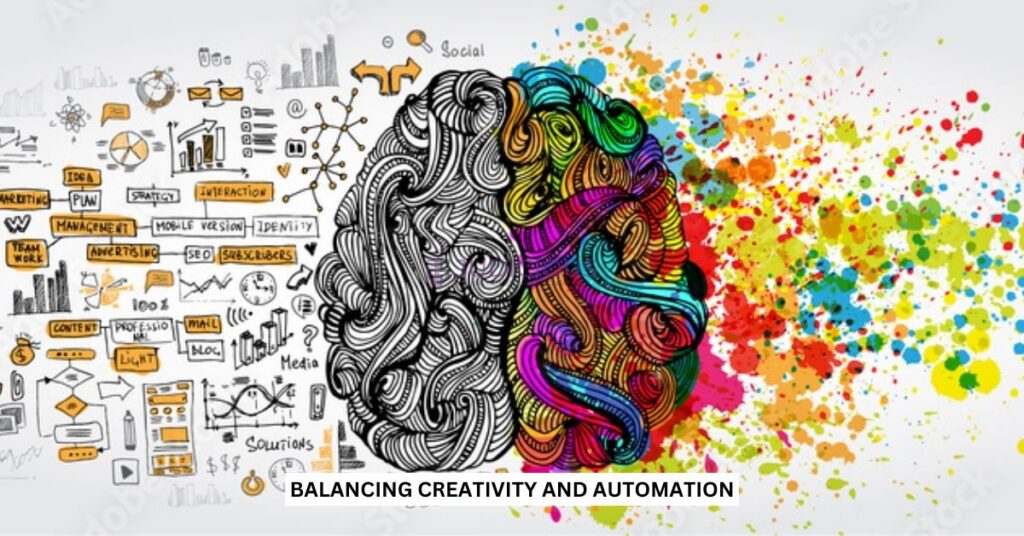
Challenges
The integration of automation into creative processes presents a double-edged sword. On one hand, automation tools, including AI-driven platforms, can enhance creativity by providing new ways to generate ideas, reduce repetitive tasks, and analyze vast amounts of data for inspiration. On the other hand, there’s a growing concern that excessive reliance on automation may diminish the value of human creativity and intuition, leading to a homogenization of creative outputs.
For industries that thrive on creativity, such as art, music, literature, and design, the challenge lies in leveraging automation to augment human creativity without replacing it. The fear is that as algorithms become more capable of producing creative works, the unique human touch that imbues creativity with depth and emotion may be lost.
Ethical Considerations
Ethically, the debate centers around authorship, originality, and the value we assign to human versus machine-created works. When an AI produces a painting or composes music, who holds the copyright—the creator of the AI, the user, or the AI itself? Moreover, there’s the issue of transparency. Creators must navigate the ethical implications of disclosing the extent to which automation has been used in their creative processes.
Data Privacy and Security

Challenges
As we harness more sophisticated technologies, the volume of data collected and processed has skyrocketed. This data often includes sensitive personal information, making data privacy and security paramount. The challenge is twofold: protecting this data from malicious actors and ensuring that its collection and use are ethical and respect user privacy.
Companies and governments amass vast amounts of data, from personal health records to online behavior patterns. Ensuring this data’s security against breaches is an ongoing battle, with cyber threats evolving in sophistication. Moreover, the ethical use of this data is under scrutiny. The collection and analysis must be transparent, with clear benefits to the individuals whose data is being used. There’s also the matter of consent—users should have control over what data is collected and how it’s used.
Ethical Considerations
At the heart of data privacy and security are ethical considerations regarding surveillance, consent, and the balance between public good and individual privacy. The use of data analytics and AI in surveillance, for example, raises questions about the right to privacy versus the benefits of enhanced security or targeted services.
Moreover, there’s a pressing need for ethical guidelines that govern data collection, use, and sharing to ensure that these practices do not discriminate against or harm individuals or communities. This includes considerations around data bias, where algorithms trained on biased data sets can perpetuate or even exacerbate inequality and discrimination.
Both balancing creativity with automation and ensuring data privacy and security require careful consideration of the potential benefits and drawbacks. As we navigate these challenges, it’s crucial to place ethical considerations at the forefront of technological innovation, ensuring that advancements serve to enhance human creativity, protect individual rights, and promote a fair and equitable society.
Conclusion
In conclusion, as AI continues to intertwine with content marketing, it promises to reshape the landscape with unprecedented personalization, efficiency, and strategic insight. By harnessing the power of AI for content creation, optimization, distribution, and performance analysis, marketers can deliver more relevant and engaging content than ever before.
However, this technological advancement brings forth challenges and ethical considerations, particularly around creativity, data privacy, and security. It is imperative for businesses to navigate these challenges thoughtfully, ensuring that the use of AI in content marketing not only enhances audience engagement but also respects privacy and fosters creativity, ultimately contributing to a more informed, connected, and ethical digital ecosystem.
FAQs
How does AI improve content personalization?
AI analyzes user data to create highly personalized content experiences, enhancing engagement and loyalty.
Can AI replace human content creators?
While AI can assist in content creation, human creativity and insight remain irreplaceable for nuanced and emotionally resonant content.
What are the ethical considerations in using AI for content marketing?
Ethical considerations include ensuring data privacy, avoiding bias in AI algorithms, and maintaining a balance between automation and human touch.
How can small businesses leverage AI in content marketing?
Small businesses can use AI tools for content optimization, audience analysis, and personalized marketing, even with limited resources.
What is the future of AI in content marketing?
The future of AI in content marketing lies in more advanced personalization, real-time content optimization, and seamless integration across marketing channels.

